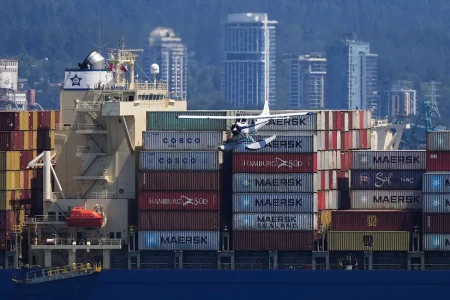The re-election of Donald Trump as U.S. President has sent shockwaves through Canada’s business community. Entrepreneurs nationwide are bracing for significant economic disruptions stemming from Trump’s proposed tariffs and protectionist policies. The looming threat of a 10% universal tariff on imports has intensified concerns among Canadian manufacturers and exporters, potentially impacting jobs, competitiveness, and cross-border trade.
Impact on Canadian Exports
With over 77% of Canadian exports destined for the United States, Canada’s economy is deeply intertwined with its southern neighbor. The Canadian Chamber of Commerce warns that a 10% tariff could result in annual economic losses of approximately $30 billion, disproportionately affecting the manufacturing sector. Dennis Darby, President and CEO of Canadian Manufacturers & Exporters, emphasizes that such tariffs would escalate production costs, leading to higher consumer prices and straining household budgets. This scenario threatens the stability of businesses and the broader economy.
Quebec’s Call for Resilience
In Quebec, where 75% of exports are U.S.-bound, business leaders are particularly concerned. The Fédération des chambres de commerce du Québec highlights the urgency for stronger economic diplomacy with the U.S. and enhanced tax policies to help Quebec’s businesses remain competitive. Philippe Noël, Vice President of the federation, argues that fostering innovation and market diversification is crucial to protecting Quebec’s economy amid protectionist pressures from the south.
Ontario’s Manufacturing Concerns
As Canada’s industrial powerhouse, Ontario faces significant risks if Trump’s tariffs are enacted. With a large share of its goods flowing to the U.S., Ontario’s economy could see inflated production costs and disrupted supply chains. The Ontario Chamber of Commerce advocates proactive engagement with U.S. trade officials to mitigate tariff impacts. By prioritizing regional partnerships and exploring alternative trade routes, Ontario’s manufacturers are preparing contingency plans to ensure long-term viability.
British Columbia Eyes Pacific Partnerships
For British Columbia, which relies heavily on U.S. markets through its ports, the potential for tariffs and barriers could strain its forestry, mining, and agriculture industries. The BC Business Council is urging businesses to strengthen ties with Pacific Rim nations, reducing dependence on the U.S. for exports. B.C. Premier David Eby emphasizes that trade diversification is vital to shielding the province’s economy from U.S. protectionism.
A Looming Trade War?
With Canadian officials considering retaliatory tariffs, the risk of a Canada-U.S. trade war looms large. TD Economics notes that Donald Trump may leverage tariffs as bargaining chips in upcoming renegotiations of the Canada-United States-Mexico Agreement (CUSMA), potentially forcing Canadian businesses into prolonged periods of economic stagnation. Such a trade war could disrupt supply chains, increase costs, and create uncertainty, adversely affecting business operations and planning.
Military and Immigration Pressures
Beyond trade, Trump’s expected pressure on allies to increase defense spending could strain Canada’s federal budget. Immigration may also become a flashpoint if Donald Trump follows through on plans for mass deportations, potentially resulting in a surge of asylum seekers at Canadian borders. This scenario could exacerbate internal political tensions, particularly in Quebec, where migration remains a key electoral issue.
Day-to-Day Business Challenges Ahead
Canadian entrepreneurs should prepare for several challenges in the coming years:
- Increased Costs: Tariffs may raise the cost of imported materials and goods, squeezing profit margins.
- Supply Chain Disruptions: Trade tensions could lead to delays and uncertainties in supply chains, affecting production schedules and delivery times.
- Regulatory Changes: Shifts in U.S. policies may necessitate adjustments in compliance and operational strategies.
- Market Volatility: Economic instability could result in fluctuating demand and currency exchange rates, impacting pricing and revenue forecasts.
As Canada braces for economic turbulence under Trump’s second term, businesses are calling for strategic resilience. From robust trade diversification to proactive government advocacy, Canada’s business community is seeking ways to weather an unpredictable and potentially challenging U.S.-Canada relationship. Strengthening Canada’s global partnerships and economic diplomacy will be essential to safeguarding prosperity and stability for Canadian entrepreneurs in the years ahead.







